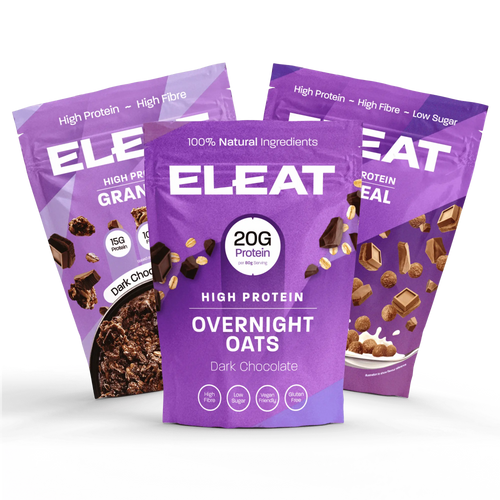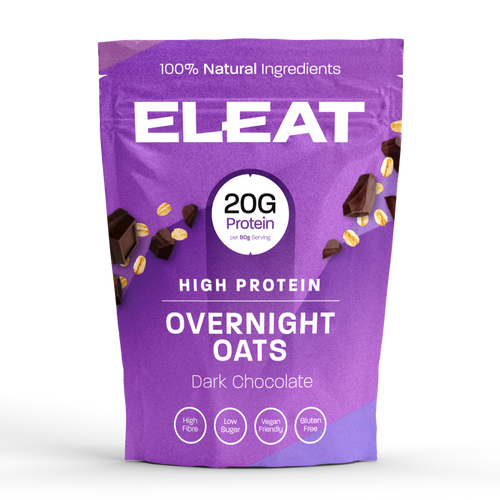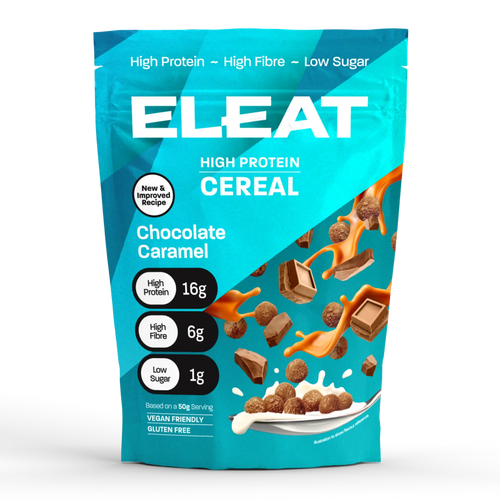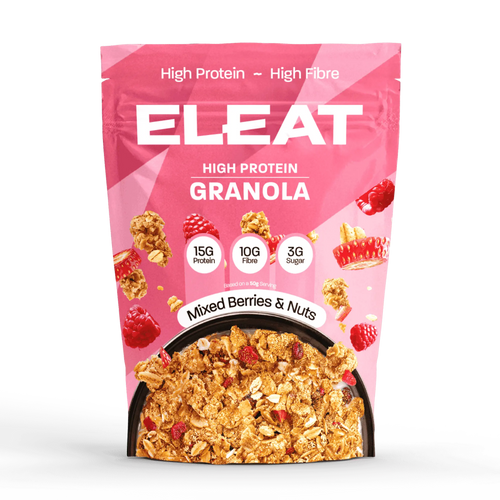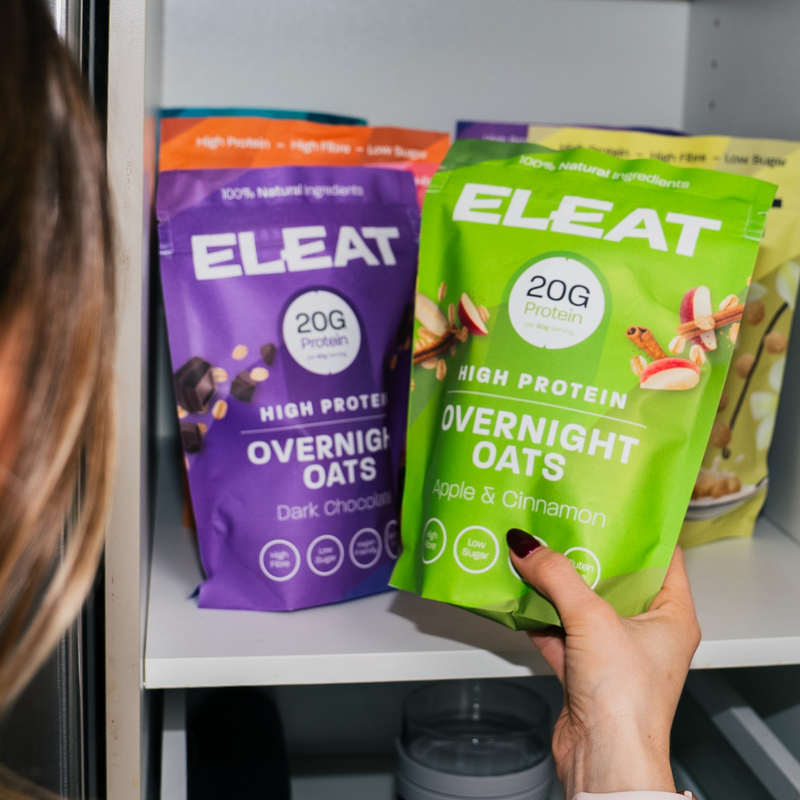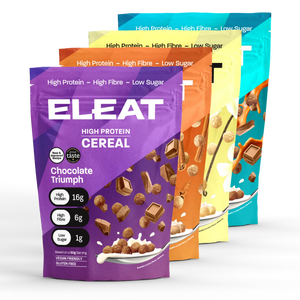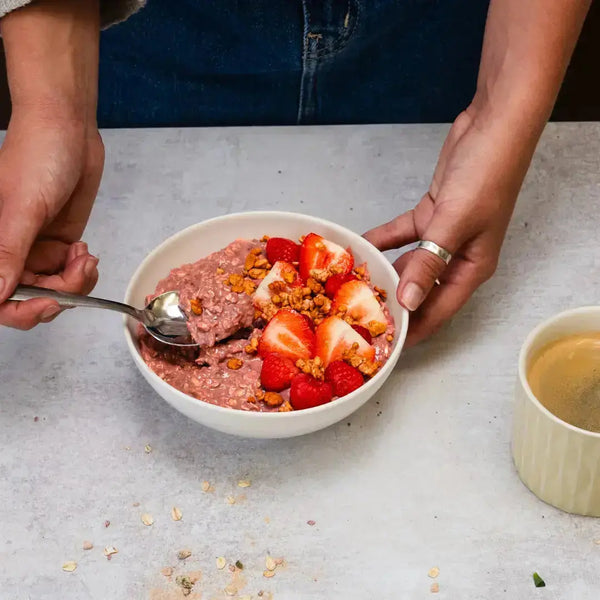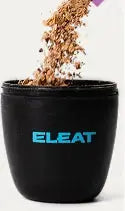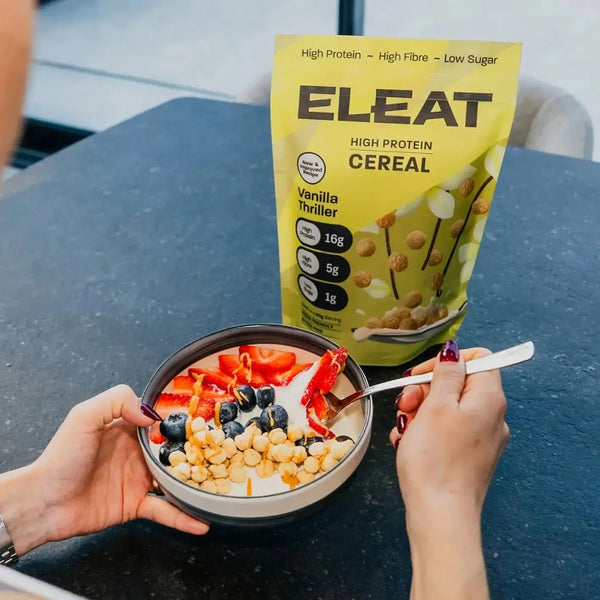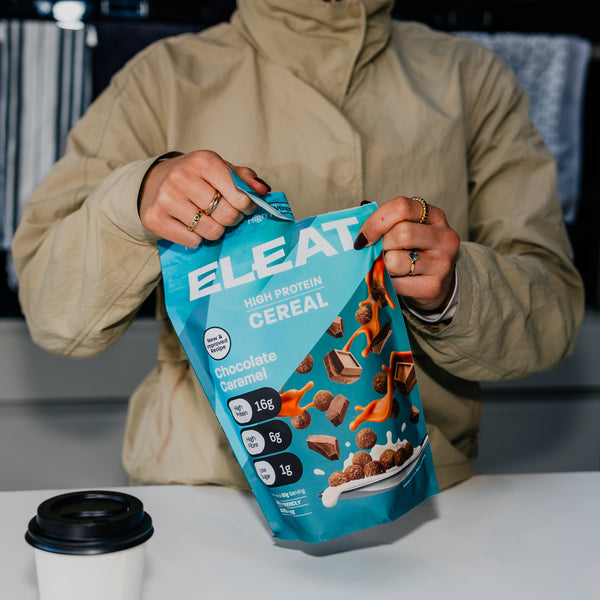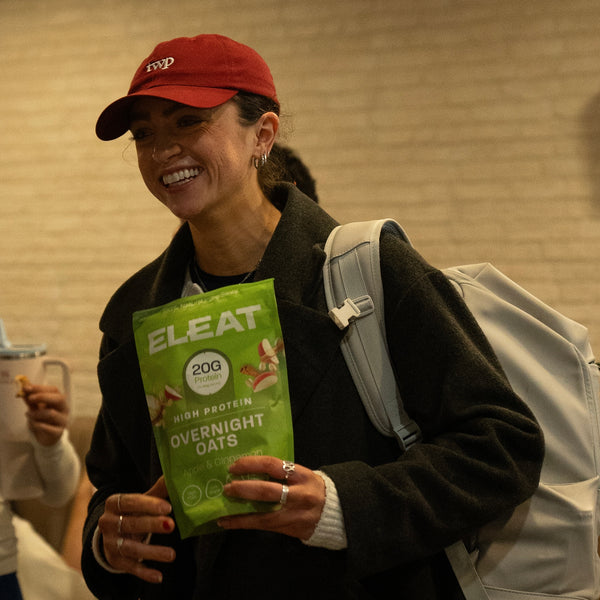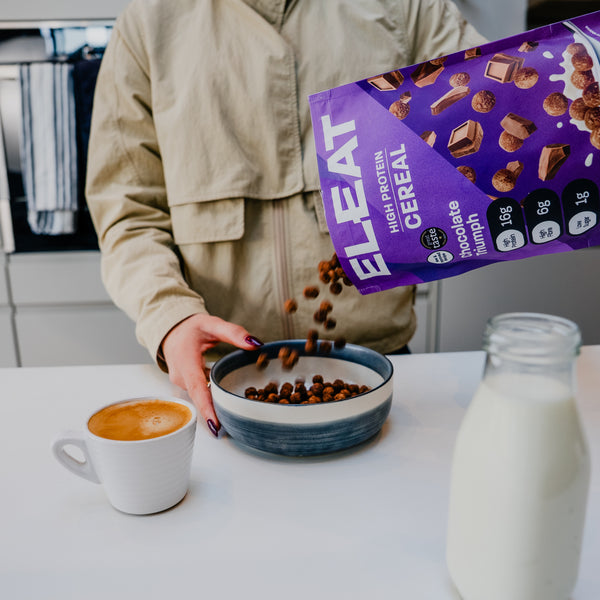In this article:
Picture this: you're standing in the cereal aisle, surrounded by a sea of bright boxes shouting things like “whole grain,” “low fat,” “high protein,” and “heart healthy.” Every label is trying to convince you it's the perfect choice for your morning routine, but they can’t all be telling the truth, right?
With so many options and so much clever marketing, figuring out which cereal is actually healthy can feel like decoding a puzzle with missing pieces. Is sugar the enemy? Do you need fibre? Should protein be your top priority? And what even counts as a “serving”?
This blog cuts through the confusion. Backed by a nutritionist’s insight, we’ll walk you through exactly what to look for (and what to avoid) when shopping for breakfast cereal, so you can make smarter, simpler choices the next time you’re in that brightly lit aisle.
Why Cereal Gets A Bad Rep
Breakfast cereal hasn’t always had the healthiest reputation, but it didn’t start out that way. Originally, cereals were introduced as a wholesome, fibre-rich alternative to heavy breakfasts, with roots in wellness movements dating back to the late 19th century. For a while, grabbing a bowl of cereal felt like the healthiest choice you could make in the morning.
But somewhere along the way, things changed.
As cereal brands exploded in popularity, so did the competition for shelf space and marketing. To make products more appealing, manufacturers started adding sugar, artificial flavours, and eye-catching mascots. Ultra-processed cereals became the norm, loaded with sweeteners and stripped of fibre, protein, and anything truly filling. Many of the cereals marketed to kids (and adults, let’s be honest) now resemble dessert more than breakfast.
That’s why cereal has earned its reputation as a “sugar bomb in disguise.” It’s not entirely unfair, many popular cereals offer a quick spike in energy, followed by a crash and mid-morning hunger.
But here’s the good news: not all cereals are created equal. There are still plenty of options that deliver real nutrition, if you know what to look for.
What “Healthy” Really Means in a Cereal
With so many cereals claiming to be “healthy,” it’s easy to get misled by buzzwords. But real nutrition isn’t found in marketing, it’s in the fine print. So what actually makes a cereal nourishing? Here’s a simple checklist from a nutritionist’s point of view to help you separate smart choices from sugary imposters:
Sugar Content: Keep It Low
One of the biggest red flags in cereal is added sugar. Even cereals branded as “natural” or “whole grain” can sneak in 10, 12, or even 18 grams of sugar per serving, often more than a dessert.
✅ Aim for 6–8 grams or less per serving (ideally with no nasty sweeteners too)
Fibre: Your Gut’s Best Friend
Fibre helps keep you full, supports digestion, and feeds beneficial gut bacteria. Many popular cereals strip it out in processing, but it’s one of the best markers of a truly healthy choice.
✅ Look for at least 3 grams of fibre per serving, but 5+ is even better.
Protein: Don’t Skip the Satiety Factor
Protein is key for keeping you satisfied and steadying your energy throughout the morning. Without it, you might find yourself reaching for a snack an hour later.
✅ Choose cereals with 5 grams or more of protein per serving, bonus points if it comes from whole food sources like seeds, legumes, or nuts.
Whole Grains: Not Just a Buzzword
“Whole grain” means the grain is kept intact, offering more nutrients and fibre than refined versions. But don’t fall for vague labels like “made with whole grain.”
✅ Look for clear terms like “100% whole grain,” “whole oats,” or “whole wheat” near the top of the ingredient list.
Serving Size Games: Don’t Be Fooled
Many cereals make themselves look healthier by listing unrealistically small serving sizes, like 1/2 cup, on the label. But most people pour 1 to 1.5 cups into a bowl without thinking twice.
✅ Always check the serving size and do the math to see how much sugar or calories you’re actually eating.
Bottom Line
A healthy cereal isn’t about one magic number, it’s about balance. Low in sugar, high in fibre, made from whole ingredients, and portion-aware. Keep these criteria in mind, and you’ll be able to spot the truly nourishing options from the ones just pretending to be.
Nutritionist-Approved UK Cereal Picks
Here's a roundup of accessible cereal brands and products that tick the nutrition boxes: fibre-rich, low sugar, made with whole ingredients, and genuinely good for you
1. ELEAT Functional Cereal
Why it stands out: Designed with performance and gut health in mind. High in protein, rich in fibre, omega-3s, and made without added sugar. Created in the UK, it’s ideal for active lifestyles and fitness-focused eaters.
2. Lizi’s Low Sugar Granola
Made with oats, nuts, and seeds. Just 1.9g sugar per 100g—a rare find in the granola aisle.
3. Weetabix
Classic, no-frills, high-fibre. Just whole wheat and a dash of salt. Easily customisable with fruit or yoghurt.
4. Rude Health Brown Rice Puffs
Simple, puffed whole grain brown rice—no added sugar or salt. Great for minimalist eaters or as a mix-in.
5. Dorset Cereals Simply Delicious Muesli
Naturally sweet from fruit, high in fibre, and no added sugar.
Conclusion
The cereal aisle doesn’t have to feel like a nutritional minefield. With just a few key label-reading skills, like checking sugar content, prioritising fibre and protein, and spotting real whole grains. You can turn your morning bowl into something that actually supports your health, not sabotages it.
From UK classics like Weetabix to functional newcomers like ELEAT, there are plenty of cereals that truly deliver on nutrition without relying on sugary gimmicks. The trick is cutting through the marketing noise and focusing on the facts.
So the next time you're standing in that aisle, you won't be just another confused shopper, you'll be an informed one. And your breakfast bowl? It’ll be better for it.
